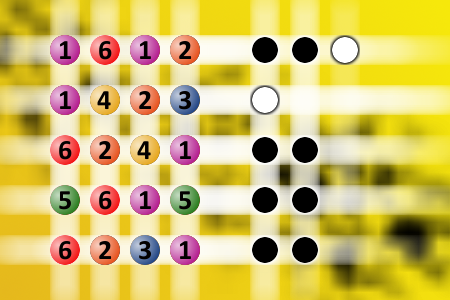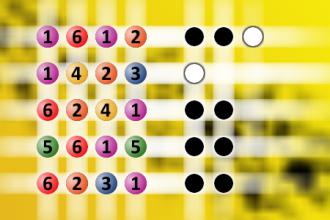Which is a winning combination of digits?
The computer chose a secret code (sequence of 4 digits from 1 to 6). Your goal is to find that code. Black circles indicate the number of hits on the right spot. White circles indicate the number of hits on the wrong spot.Correct answers: 46
The first user who solved this task is Djordje Timotijevic.
#brainteasers #mastermind

Nothing personal....
"I hope you didn't take it personally, Reverend," an embarrassed woman said after a church service, "when my husband walked out during your sermon."
"I did find it rather disconcerting," the preacher replied.
"It's not a reflection on you," insisted the church goer. "Ralph has been been walking in his sleep since childhood."

